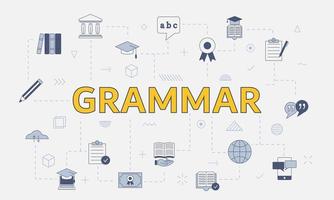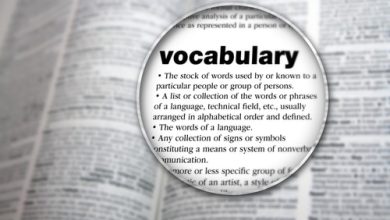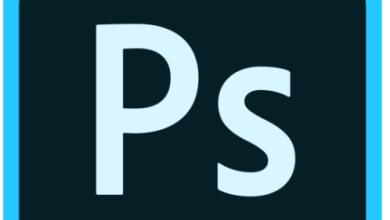Professional Advice for Writing Career Episodes for a CDR Report

One of the most important sections of the Competency Demonstration Report (CDR) is the career episode. The MSA booklet considers the career episode as an essential component, as this is where your engineering skills are highlighted. Our professionals have simplified the writing of the career episode in the most straightforward way.
The Career Episode shows the engineer’s most noteworthy academic accomplishments and work experience. The engineer must focus on the three various projects they have worked on when writing the Career Episode, and it must be part of the engineer’s professional experience. The CDR assessor will learn about the technical knowledge they earned during their studies and professions as engineers in the Career Episode. They can then choose you for the position you deserve based on the facts provided.
Significance of Career Episode for the CDR report
The career episode is critical for displaying your expertise, capabilities, and successes in your particular field. The career episode report includes information on your job and engineering abilities. You might write your career episodes about university projects you worked on during your studies or projects you worked on in your professional working environment for a company. You must write three career episodes for the CDR Report, all of which must use the same tactics. The following are some key factors to consider while creating your career episode.
Each episode of your engineering career focuses on a specific time period or aspect of your work. The sections of career episode should be from a separate period of your employment or different project topics in your engineering work. Similarly, these projects you have chosen should demonstrate how you applied your engineering knowledge and skills in the given job. Therefore, work-related Career Episodes must be accompanied by confirmation of employment, and these should be uploaded to the “Employment” section of your online application.
- Instead of focusing on your teammates, consider your role in the project.
- Write about the flaws you faced while performing the tasks you were given and how you overcame them.
- Application of your knowledge and how it helped you achieve your goals
- You overcame some technical difficulties.
- You produced ideas and techniques that had a significant impact on the outcome of the specified work.
Why Do You Need Career Episode for the CDR report ?
Engineers holding degrees from universities outside of Australia must demonstrate their ability to Engineers Australia (EA). Moreover, they want to make sure that the skilled immigrants they’ve admitted can work in Australia and aren’t a threat to the economy. According to the EA, engineers intending to come to Australia must write a competency demonstration report (CDR). The CDR comprises three career episodes that demonstrate your knowledge and skills from previous engineering years, internships, or equivalent programs.
EA may evaluate the candidate’s engineering ability at this point in their career. As a result, a well-planned career episode is required if someone wishes to ensure that their move to Australia is viewed favourably by EA.
Basic Format for a Professional Career Episode
CDRs follow a specific format that gives candidates a complete overview of their professional experience at a glance. For your CDR Report, you must write three unique career episodes. Instead of using a tabular structure, career episodes should be written in an essay format. Introduction, background, personal engineering activity, and summary are the four sections of each Career Episode. What exactly should this section contain? Let’s see what happens next.
Introduction (100 words)
The Career Episode begins with this part. This section should have a word count of around 100 words. In this section, you must write in chronological order about the purpose and scope of a project you are now working on.
- Dates and lengths of career episodes (the exact date of beginning as well as the ending of the episode)
- Name of educational institution or company where you gained experience
- Your project’s physical location (city, state, or country) where you gained experience
- Title of your position at that particular institution/organisation
Background (200-500 words)
The following segment of the career episode is between 200 and 500 words long. This section sets the scene and provides context for your studies or work. It should include things like:
- The essence of the engineering project
- The project’s objectives
- The nature of your particular job
- An organisational chart that shows your position in relation to the career episode
- State your obligations (give an official duty statement if one is available).
Personal Engineering Activity (500-1000 words)
This is the primary body and important component of the applicant’s project history. Applicants describe the real task they did in great detail. You should explain what you did and how you accomplished it. It is not enough to describe the processes of a team or group; your function must be specified explicitly. Remember that your engineering skills are being tested. This section should include the following items:
- The tasks assigned to you and how you fulfilled them; How you enrolled your engineering knowledge and abilities;
- Any technical issues or problems you experienced and how you resolved them.
- Your strategies, including any original or innovative design work;
- how you worked with other members of your team.
Summary (50-150 words)
This section reflects your opinions and participation in the engineering exercise. It should include information such as your perspective on the project as a whole:
- How well the project met its objectives and met the requirements;
- What contribution did your specific role make to the project?
Writing a Career Episode is an ability that should be properly crafted to express everything there is to know about you. It should emphasise your achievements over collaborations and how you contributed to the project’s success. Furthermore. preparing the CDR with care and attention to detail would be advantageous. Our experts can provide you with effective online services if you require writing aid.
Tips for Getting a Good Career Episode
- Your ANZSCO occupation should be the subject of your career episode projects. The project for each episode should be unique and reflect your abilities and strategies for dealing with the difficulties presented. It could be a project from your academic or professional year in which you played a major role.
- The career episode has a word count of 1500-2500 words. Make sure you don’t go overboard with the graphs, drawings, and explanations.
- An EA assessor evaluates your report. Excessive terminology, technical language, and jargon are not required, as they may delay or reject your report.
- Use of Australian English for career episodes
- Along with active voice, the majority of the first-person narrative, i.e., “I,” must be used throughout.
- Avoid tables and computations that aren’t necessary. Instead of specific technical information, include a description of the operations.
- Rather than collaborating with your teammates, you should focus on your contribution to the project. Use more information regarding your issues along with the approaches you utilise to finish the project.
- Follow EA’s guidelines for writing career episodes.
- Include the appropriate number for each paragraph in the career episode in the Summary Statement for easy reference.
- Career Episode 1’s first contribution will be 1.1, 12, and 1.3. In Career Episode 2, the paragraphs will be 2.1, 2.2, and 2.3.
- Write a proper summary for all the career episode paragraphs in the summary statement.
Guidance from experts can go a long way if you have a busy schedule. Hence, many professionals are working in this field to help you with the assessment. From CDR reports and CDR samples to RPL report samples, you can get them all in one place. CDRWritersHub is an Australian-registered consultant with expertise in RPL report writing, KA02 report writing, and CDR report writing and reviewing.




